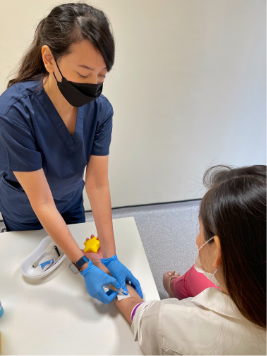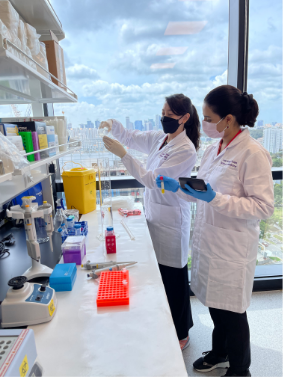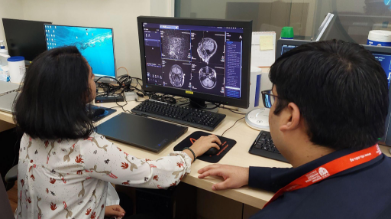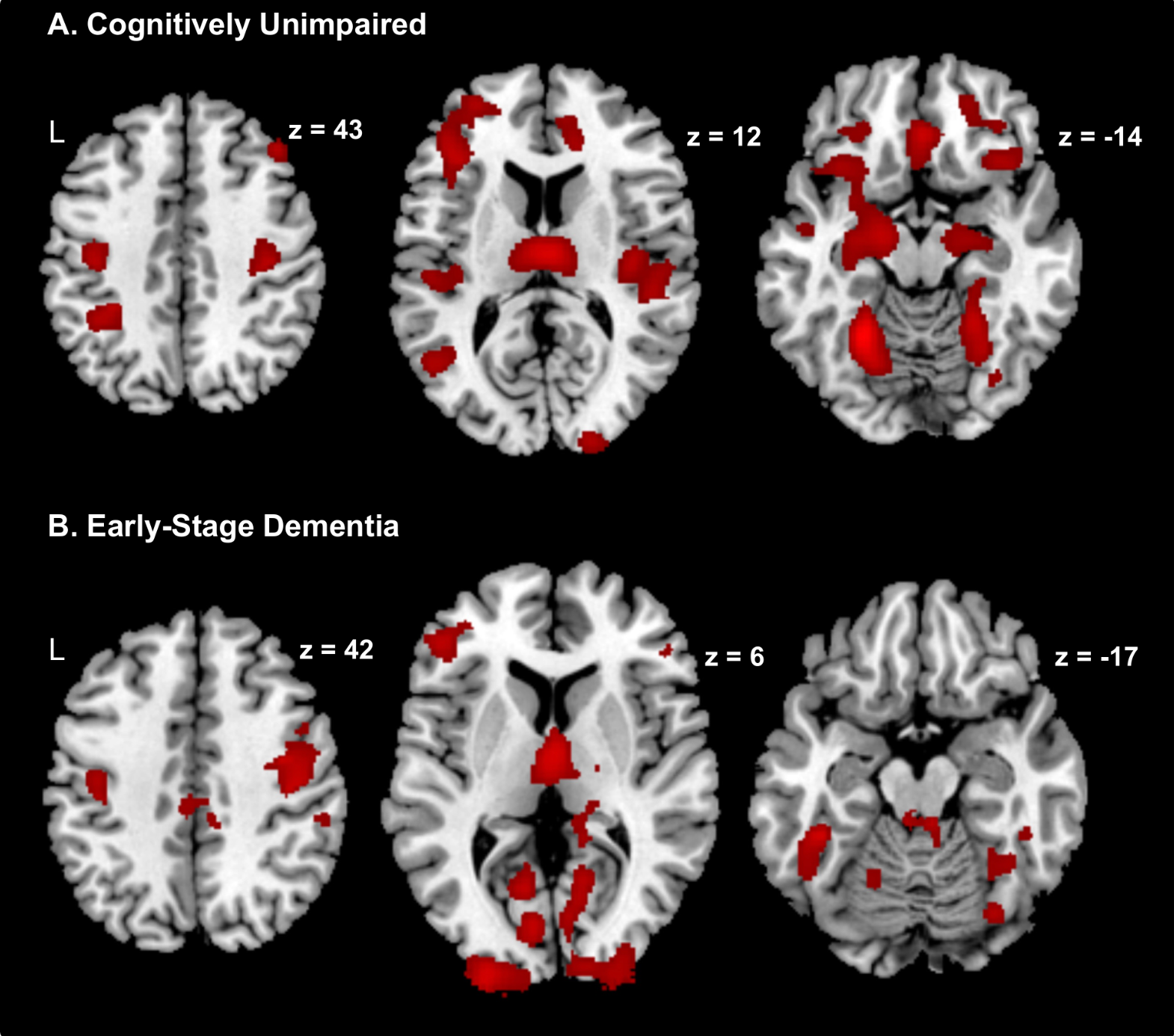About Us



What We Do
Our flagship study, the Biomarkers and Cognition Study, Singapore (BIOCIS), is a groundbreaking 3-year research project involving 1,500 participants from all ethnic groups in Singapore. Through this study, we aim to uncover biomarkers that contribute to cognitive decline and dementia, including Alzheimer’s disease and vascular dementia—a condition caused by reduced blood flow to the brain. Participants undergo annual assessments that include cognitive tests, blood samples, brain imaging, lifestyle profiling, retinal scans, and microbiome analysis.
Objectives
- To study biological mechanisms in Asians that result in cognitive disorders.
- To develop diagnostic modalities for detection of prodromal dementia.
- To develop intervention strategies to prevent dementia.
Approach
Our multidisciplinary approach combines:
- Neuropsychological characterization, cutting-edge neuroimaging, and state-of-the-art blood-based biomarkers.
- Digital platforms and Artificial Intelligence to track cognitive and behavioral changes.
- Biomedical engineering to design new technologies for diagnosing and monitoring brain health.
In addition to BIOCIS, we conduct manyother important studies:
- SINGER: The SINgapore GERiatric intervention study to reduce cognitive decline and physical frailty, focusing on lifestyle interventions to protect brain health.
- CHARM: The Cerebrovascular Health, Adult Learning, Resilience, and Mechanisms study, exploring how vascular health affects cognitive aging and resilience.
- CHOICE: The Cerebrovascular Health, Optical Imaging, Cognition, and Evaluation of Lifestyle Intervention Study, using advanced retinal imaging the link between, the eye, brain, cognitive and vascular health.
- DEMAND: The Digital-based Evaluation and Management in Southeast Asian Patients with Mild Neurocognitive Disorder (DEMAND) study is a multi-country initiative aimed at improving cognitive health through a digital multidomain intervention. Conducted across six Southeast Asian countries—Singapore, Malaysia, Indonesia, Thailand, the Philippines, and Vietnam—it involves 1,000 patients over 24 weeks.
- SHINE: The Study of Health Intervention in Neurovascular and Cognitive Enhancement (SHINE) clinical trials investigate the use of a novel pharmacological and digital AI-based approach in reducing the progression of White Matter Disease (WMD) and worsening of cognitive impairment.
- REPLENISH: The REsearch on Postbiotic, LifestyLE and Nutritional Interventions to Support brain Health span (REPLENISH) study investigates the Asian gut-brain axis, correlating the Asian microbiome (gut, salivary, and skin surface) with fluid biomarkers and neuroimaging to discover postbiotics and microbial factors that can prevent age-related brain decline or promote healthy lifestyle behaviours.
Through these studies, we advance the science of dementia detection, prevention and intervention, with a particular focus on improving healthcare outcomes for Southeast Asian populations.
To learn more about our groundbreaking BIOCIS study, read the full protocol paper at Biomarkers and Cognition Study, Singapore (BIOCIS): Protocol, Study Design, and Preliminary Findings.
At the Lee Kong Chian School of Medicine, we harness the power of science, engineering, and technology to make groundbreaking medical discoveries that benefit society. By participating in our research, you are helping to advance our understanding of dementia, ultimately aiding in the development of better prevention strategies and treatments for this disease.

